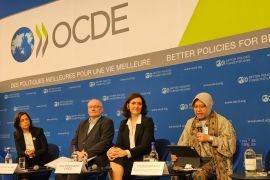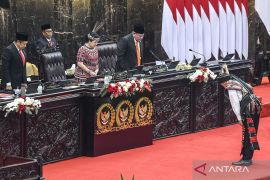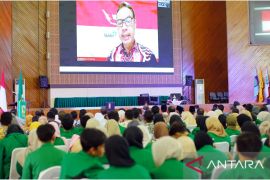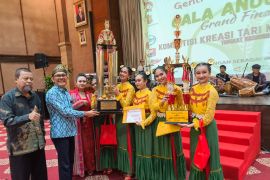"This is our big problem. Why actions cannot be taken quickly and quick decisions cannot be made in the field. It is because of this. We have too many regulations," he said.Jakarta (ANTARA News) - President Joko Widodo expressed concern over the number of regulations in the country which is too many and so has the potential to become overlapping and hinder development efforts.
"This is our big problem. Why actions cannot be taken quickly and quick decisions cannot be made in the field. It is because of this. We have too many regulations," he said in his speech at National Dialog 2017 here on Monday.
He explained there are 42,000 regulations in the country at present consisting of laws, presidential regulations, ministerial regulations, gubernatorial regulations and city mayor regulations and so are prone to contradict.
He said he has asked a number of regional heads of government to not produce regulations anymore except quality ones.
To the House of Representatives (DPR) he appealed to not produce laws as mere projects but must produce ones that are really good.
He said he would coordinate with legal experts to reduce the number of the regulations with regard to supporting acceleration of development efforts.
"(It is) because in the future it will not be the strong country beating the small one or the strong country beating the medium country but it will the fastest country that will beat the slower country," he said.
With regard to his habit of conducting field inspection President Joko Widodo said that he would continue to do it as he would not be satisfied to merely accept reports.
He said he would continue visiting regions to personally inspect the progress of infrastructure development efforts.
The national dialog was held to mark the third anniversary of President Joko Widodos government and scrutinize its achievements and raise issues that need special attention.
The national dialog was started with regional dialogs in 16 universities/institutes with each focusing on different topics.
Participants of the dialogs include academicians, experts, practitioners, parliament members, community members and media.(*)
Editor: Heru Purwanto
Copyright © ANTARA 2017











